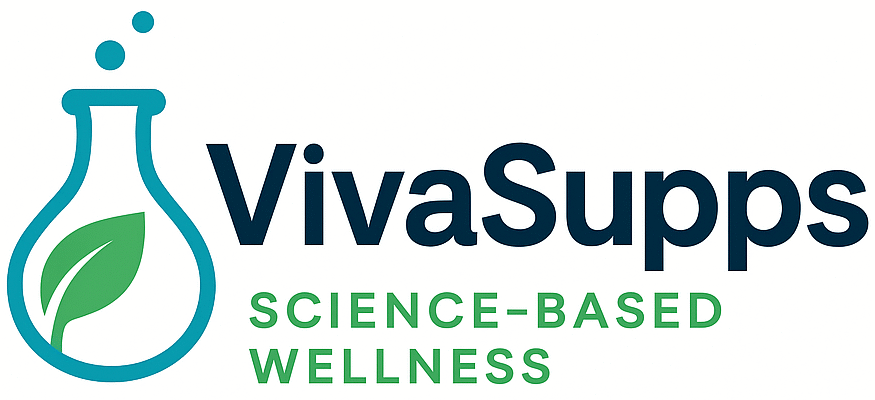
Ever wonder why some people seem to have endless energy, while the rest of us are dragging by mid-afternoon?
Can a handful of nuts or a cup of green tea actually make a difference in your day?
And is keto really better than a balanced diet, or is there an easier way to eat that actually works?
If you’ve asked yourself these questions, you’re in the right place. This guide is here to show you how to eat healthy, pick foods that actually help your body, and build simple habits that stick, without making things complicated.
Here’s the deal: Eating healthy isn’t about being perfect. You don’t have to follow every rule or give up the foods you love. It’s just about making small, smart choices consistently, and over time, those little choices make a big difference.
By the end of this guide, you’ll know what to eat, which drinks actually help, and how to set up your day so you feel energized, focused, and just… better.
1. Why Your Diet Is the Foundation of Health.
Think of your body like a car. If you fuel it with sugary snacks, processed foods, and refined carbs, it starts to sputter, you feel tired, lose focus, and get sick more easily. But when you feed it whole, nutrient-rich foods, it runs smoothly. You have more energy, recover faster, and your body handles stress much better.
Eating well can help you:
-
Keep your immune system strong so you get sick less
-
Support digestion and gut health with fiber and probiotics
-
Maintain a healthy weight without crazy diets
-
Reduce the risk of long-term illnesses like diabetes or heart problems
-
Stay sharp and improve your mood
Even small changes help. Toss some spinach in your smoothie. Swap white rice for quinoa. Snack on almonds instead of chips. Do it day after day, and over time you’ll notice your energy improves, your focus sharpens, and your body just feels better. Healthy eating isn’t a quick fix, it’s a lifestyle.
2. Top 10 Healthiest Foods You Should Be Eating
Here’s a quick-reference table with the top 10 foods, their key nutrients, and benefits:
| Food | Key Nutrients | Health Benefits |
|---|---|---|
| Leafy Greens (Spinach, Kale) | Vitamins A, C, K, calcium, iron | Support immunity, bone health, detoxification |
| Berries (Blueberries, Strawberries) | Antioxidants, fiber, vitamin C | Brain and heart health, reduce inflammation, improve digestion |
| Salmon & Fatty Fish | Omega-3 fatty acids, protein, vitamin D | Heart and brain support, anti-inflammatory |
| Nuts (Almonds, Walnuts, Pistachios) | Healthy fats, protein, fiber | Heart health, satiety, reduce inflammation |
| Avocado | Monounsaturated fats, fiber, potassium | Heart health, nutrient absorption, satiety |
| Whole Grains (Quinoa, Oats, Brown Rice) | Fiber, protein, B vitamins | Steady energy, digestion, weight management |
| Legumes (Beans, Lentils, Chickpeas) | Plant protein, fiber, iron | Gut health, heart support, blood sugar control |
| Cruciferous Vegetables (Broccoli, Cauliflower, Brussels Sprouts) | Antioxidants, fiber, glucosinolates | Cancer risk reduction, detox support |
| Eggs | Protein, choline, B vitamins | Brain health, satiety, muscle support |
| Greek Yogurt / Kefir | Probiotics, protein, calcium | Gut health, satiety, bone support |
Detailed Breakdown
Leafy Greens – spinach, kale, Swiss chard… seriously, they’re power foods. Packed with vitamins A, C, K, plus calcium and iron. Great for bones, immunity, and detox. Toss a handful in a smoothie, stir into a salad, or sauté with olive oil and garlic. Easy. Tasty. Done.

Berries – blueberries, strawberries, raspberries… full of antioxidants that protect cells, fight inflammation, and help brain and heart. Fiber keeps digestion smooth. Sprinkle on yogurt, oatmeal, or blend into a smoothie. Quick and yummy.

Salmon & Fatty Fish – loaded with omega-3s for heart, brain, joints, and fighting inflammation. Grill, bake with lemon, or toss canned salmon into a salad a couple of times a week. Simple, no fuss.

Nuts – almonds, walnuts, pistachios. Just a small handful gives protein, fiber, healthy fats. Keeps you full, supports heart health, fights inflammation. Snack, sprinkle, or mix in oatmeal.

Avocados – creamy, tasty, full of good fats, fiber, and potassium. Good for heart, keeping you full, and helping your body absorb nutrients. Mash on toast, add to salad, or blend in smoothies.

Whole Grains – quinoa, oats, brown rice. Give steady energy, fiber, B vitamins. Swap refined grains at every meal. Oatmeal for breakfast, quinoa bowls for lunch or dinner. Easy swap, big benefits.

Legumes – beans, lentils, chickpeas. Packed with plant protein, fiber, minerals. Helps blood sugar, gut, heart. Add lentils to soups, roast chickpeas, or make hummus.

Cruciferous Veggies – broccoli, cauliflower, Brussels sprouts. Antioxidants help detox and may reduce cancer risk. Steam, roast, or stir-fry.
Eggs – protein, choline, B vitamins. Good for brain, muscles, and feeling full. Boil, scramble, or slice into salads.
Greek Yogurt & Kefir – probiotics + protein. Helps gut, bones, and keeps you full. Mix with berries, in smoothies, or as a breakfast bowl.
3. Fruits & Drinks That Help
Fruits are easy wins. Apples, oranges, bananas, berries… help digestion, energy, immunity. Pair with protein or healthy fats to keep energy steady.
Green Tea – antioxidants (catechins) that boost metabolism, help heart and brain, fight inflammation. One or two cups a day is enough.
Garlic – small but mighty. One clove a day can boost immunity, reduce inflammation, support heart. Toss in salads, stir-fries, roasted veggies… whatever works.
4. Popular Diets
Keto – high fat, moderate protein, very low carbs. Can help with weight loss and blood sugar, but restrictive. Don’t forget veggies and healthy fats.
Balanced Diet – lean protein, whole grains, healthy fats, lots of fruits and veggies. Flexible, sustainable, keeps energy and focus up. Works best for most people.
Other diets:
Paleo – whole foods, no processed stuff. Good, but restrictive.
Vegan – plant-based. Healthy, may need B12, iron, omega-3 supplements.
Tip: Pick a diet that fits your life. Avoid extremes unless necessary. Focus on nutrient-rich foods and consistency.
5. FAQs
Q: What’s the healthiest food?
A: Leafy greens like spinach and kale. Packed with vitamins, minerals, antioxidants.
Q: How many fruit servings per day?
A: 2–4, with protein or healthy fats for steady energy.
Q: Green tea or coffee?
A: Both. Green tea is gentle; coffee boosts focus. Choose what works for you.
Q: Should I try keto?
A: Keto can work, but restrictive. Balanced diet is safer long-term.
Q: How to eat healthier easily?
A: Start small. Add veggies, swap grains, plan meals, keep snacks handy.
Q: Can nuts help with weight?
A: Yes. Protein, fiber, and healthy fats keep you full.
Q: Eat leafy greens daily?
A: Yes, even small amounts count.
Q: Fermented foods necessary?
A: Not required, but Greek yogurt and kefir help gut health.
Conclusion
Eating healthy is simple. Just focus on real, nourishing foods, colorful fruits and veggies, whole grains, some lean protein, and plenty of water or a cup of green tea. Simple as that. And yeah, cutting back on processed junk and added sugar helps.
Small changes really do add up. Swap white rice for quinoa, toss some berries into your breakfast, or snack on nuts instead of chips. Do these little things consistently, and you’ll notice more energy, better focus, stronger immunity, and just feeling better overall.
Plan your meals if you can. Pay attention when you eat. Include protein, fiber, and healthy fats in your plates. Your body will thank you.
Remember: your body is your best investment. Treat it well, eat good food, drink water, move a bit, and build habits that stick. Over time, you’ll feel sharper, healthier, and way more energized than you ever thought possible.


